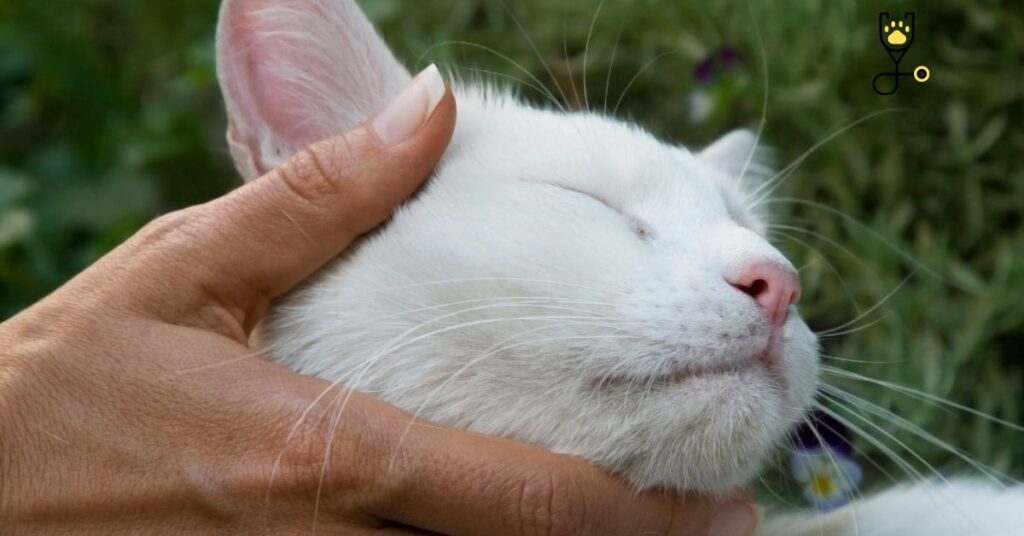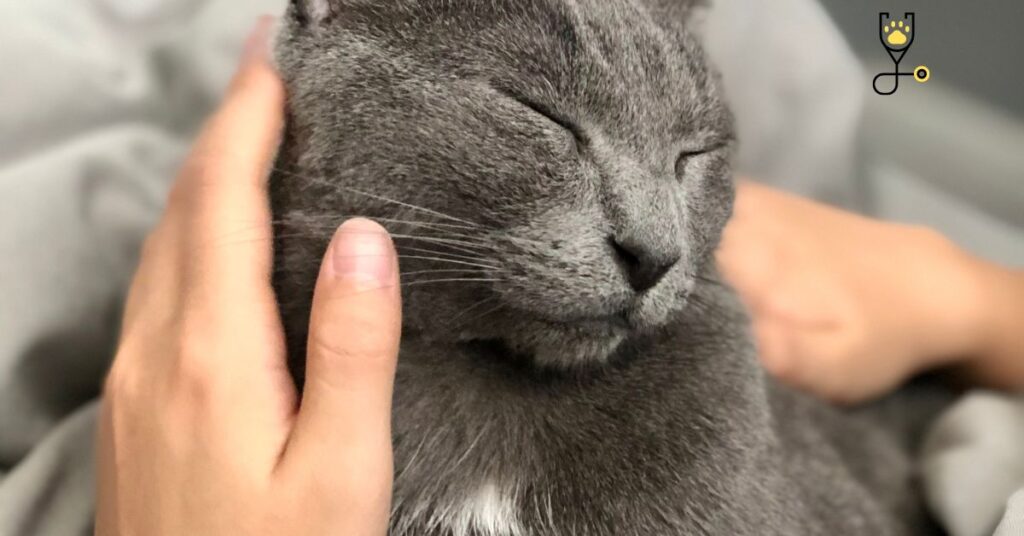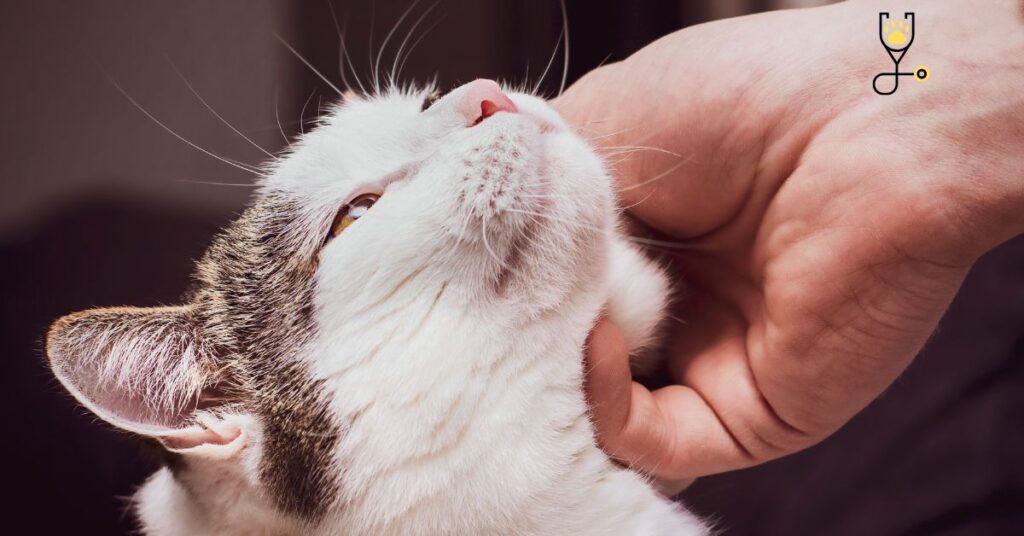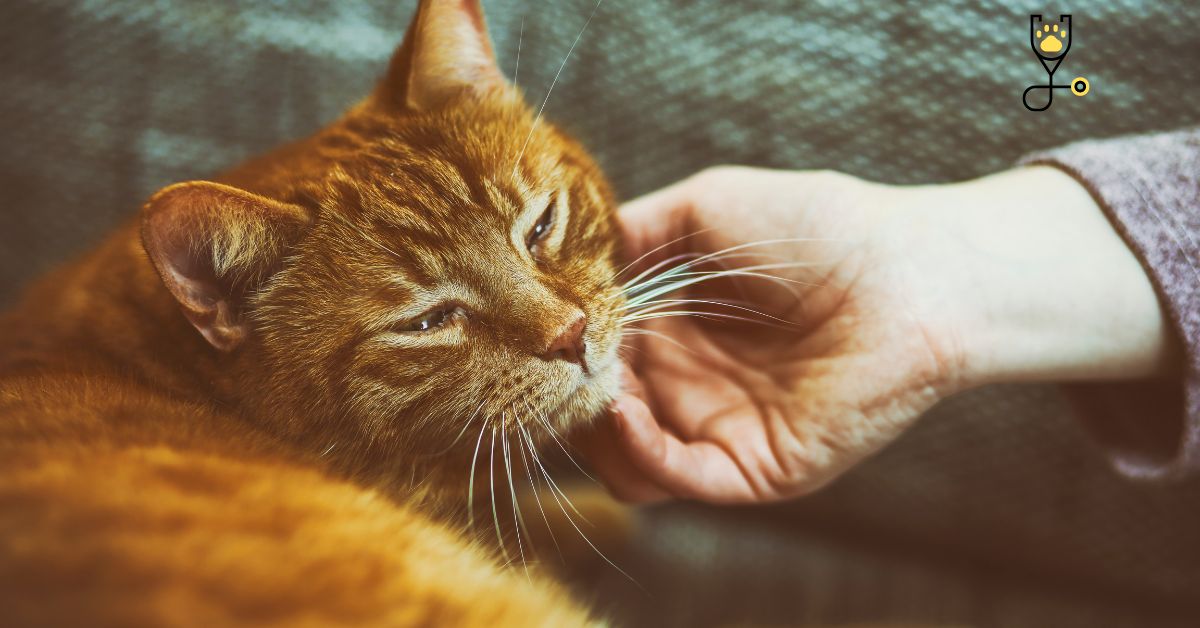There’s something special about the purring of a cat, and it turns out there’s a lot to learn about this delightful noise. From scientific research to vets’ insights, here are twelve facts about purring cats. Whether you’re a lifelong cat lover or just getting acquainted with these creatures, you’re sure to find something new and interesting here!
What is Purring?
Purring is a low, continuous, rumbling sound made by some cats. It’s usually most noticeable when they’re happy and content, but it can also occur when they’re nervous or even in pain.
1. Vibrations heal bones and wounds of cats
Purring is created by vibrations in a cat’s throat and chest, and these same vibrations can actually help heal bones and wounds. Studies have shown that frequencies between 25 and 150 Hertz promote bone growth and healing, and cats’ purrs fall right within this range. So if your kitty is injured, give her plenty of love and cuddles – it just might help her recover more quickly!
2. Purring requires energy
You might think that purring is just a passive noise, but it actually requires quite a bit of energy. In fact, some estimates suggest that purring takes up around 10% of a cat’s daily energy expenditure! So the next time you see your kitty napping in the sun, remember that all that purring takes a lot of work.

3. Cats only purr when they’re happy
It’s commonly believed that cats only purr when they’re content and relaxed, but this isn’t always the case. While purring is often a sign of happiness, cats may also purr when they’re feeling nervous or in pain. So if you notice your cat Purring more than usual, it’s always best to consult with your veterinarian just to be sure everything is okay.
4. Not all cats can purr
While most cats are able to purr, there are a few breeds that cannot. For example, Siamese cats and other Oriental breeds typically do not purr. Additionally, some kittens are born without the ability to purr, though this is typically only temporary and they will eventually develop this skill.
5. Purring can be therapeutic for humans
Listening to a cat purr has been shown to have a calming effect on humans. Additionally, the low frequencies emitted by a purring cat can actually help relieve pain and heal injuries. So if you’re ever feeling stressed or under the weather, spending some time with your feline friend just might be the cure!

6. Purring is contagious
Have you ever noticed that when one cat starts purring, others in the vicinity often follow suit? It turns out that purring is actually quite contagious – especially among kittens. So if you hear a chorus of cats purring, chances are good that they’re all feeling happy and content.
7. A mother’s purr can comfort her kittens
A mother cat’s purring can actually have a soothing effect on her kittens, helping them to feel safe and secure. This is thought to be due to the low frequencies emitted by a purring cat, which can have a calming effect on the nervous system.
8. Cats purr at different frequencies depending on their mood
As mentioned before, cats may purr for different reasons – happiness, stress, pain, etc. Interestingly, the frequency of their purr will actually change depending on their mood. For example, a happy cat’s purr typically falls between 25 and 150 Hertz, while a cat in pain may purr at a lower frequency of around 20 Hertz.
9. Scientists aren’t sure how cats purr
Despite all we know about Purring, there are still some mysteries surrounding this unique ability. For instance, scientists are not quite sure how cats are able to produce a continuous sound without taking a breath. Additionally, we don’t know why some cats purr more than others. However, there is still plenty of research being done on this topic, so hopefully, we’ll have all the answers soon!
10. Purring can be used as a form of communication
Cats use purring as a way to communicate with both other cats and humans. For example, a mother cat may purr to signal her kittens that it’s time to nurse. Additionally, some cats will Purr when they’re feeling threatened or nervous – perhaps as a way of appeasing their aggressor.

11. Cats purr when they’re happy
While it’s commonly believed that cats only purr when they’re content and relaxed, this isn’t always the case. While purring is often a sign of happiness, cats may also purr when they’re feeling nervous or in pain. So if you notice your cat Purring more than usual, it’s always best to consult with your veterinarian just to be sure everything is okay.
12. Purring can have health benefits for cats
Purring has been shown to have a number of health benefits for cats, including reducing stress, healing injuries, and even boosting immunity.
So if you want your cat to live a long and healthy life, make sure to give them plenty of opportunities to purr!
Conclusion
As you can see, there’s a lot more to purring than meets the eye. So the next time you hear your cat Purring away, take a moment to appreciate this fascinating ability!
FAQ’s
1. What is the difference between a cat purring and a cat meowing?
Purring is a continuous sound that cats make by vibrating their vocal cords. Meowing, on the other hand, is a series of short vocalizations that cats use to communicate with humans.
2. Do all cats purr?
No, not all cats purr. While most domestic cats do purr, there are some breeds (such as Siamese and Oriental Shorthairs) that rarely purr. Additionally, wild cats such as lions and tigers do not purr – they roar!
3. Why do cats purr?
There are a number of reasons why cats may purr, including happiness, stress, pain, and hunger. However, the exact reason why your cat is purring can be difficult to determine. If you’re concerned about your cat’s health, it’s always best to consult with your veterinarian.
4. How can I get my cat to purr?
There is no guarantee that you will be able to get your cat to Purr on command. However, try petting them in their favorite spot or giving them a treat. If your cat is happy and comfortable, they may start Purring on their own!
5. Is purring always a sign of contentment?
No, as mentioned before, cats may also purr when they’re feeling stressed or in pain. So if you notice your cat Purring more than usual, it’s always best to consult with your veterinarian just to be sure everything is okay.







